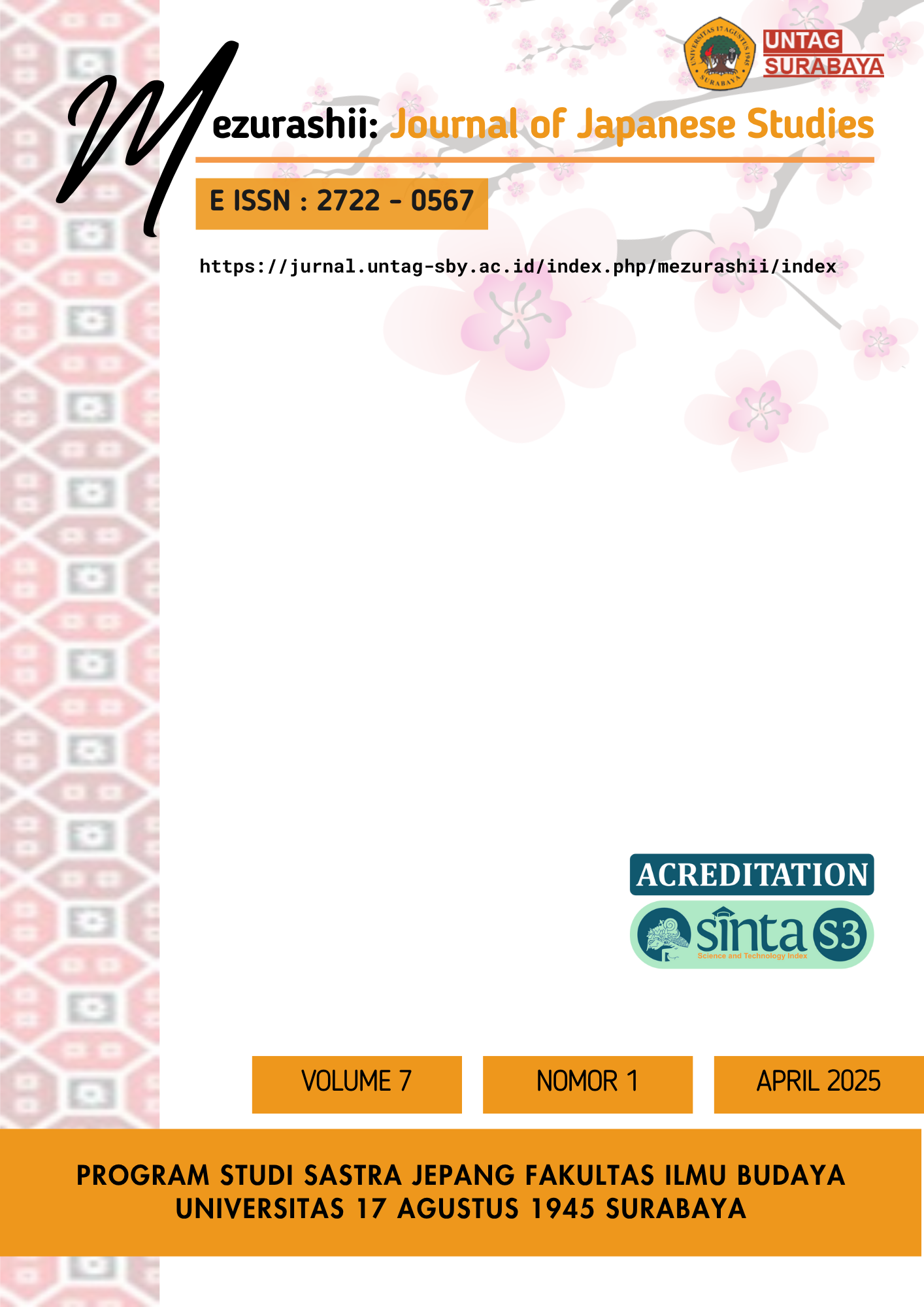Verba Gakkari Suru dan Ki O Otosu sebagai Sinonim dalam Kalimat Bahasa Jepang (Kajian Semantik)
DOI:
https://doi.org/10.30996/mezurashii.v7i1.13112Abstract
The Japanese language has many vocabulary words, verbs, and adjectives that have similar meanings. One of them is a verb. Examples of verbs that are synonymous in Japanese are gakkari suru and ki o otosu. Both words have the same meaning, namely 'disappointed.' This is sometimes confusing for learners who still don't understand the differences. This study aims to find out the meaning of the verbs gakkari suru and ki o otosu in Japanese sentences and to find out if the two verbs can be replaced by each other. We analyzed the meaning of the verbs gakkari suru and ki o otosu using Hirose's (1994) theory. The method in this study uses a qualitative descriptive method. The data source used in this study is the corpus nlb.ninjal.ac.jp, with data in the form of Japanese sentences that use the verbs gakkari suru and ki o otosu. We collected the data using the Simak method and the recording technique (Mahsun in Fauzah: 2022). Based on the results of the analysis, it was found that there are similarities and differences in the use of the verbs gakkari suru and ki o otosu in Japanese sentences. In general, the verbs gakkari suru and ki o otosu can replace each other, even though there will be sentences that change their meaning. For sentences that are subjective in nature, the pronouns ki o otosu cannot be applied, and for command sentences, the two verbs gakkari suru and ki o otosu can replace each other. Gakkari suru and ki o otosu have the same meaning of disappointment because something with negative nuances happens, such as disappointment due to regret or unwanted things.Downloads
Downloads
Published
How to Cite
Issue
Section
License
Authors publishing in the Journal will be asked to sign a Copyright Assignment Form. In signing the form, it is assumed that authors have obtained permission to use any copyrighted or previously published material. All authors must read and agree to the conditions outlined in the form, and must sign the form or agree that the corresponding author can sign on their behalf. Articles cannot be published until a signed form has been received.It is a condition of publication that authors assign copyright or license the publication rights in their articles, including abstracts, to email jurnalmezurashii@untag-sby.ac.id. . This enables us to ensure full copyright protection and to disseminate the article, and of course the Journal to the widest possible readership in print and electronic formats as appropriate.








